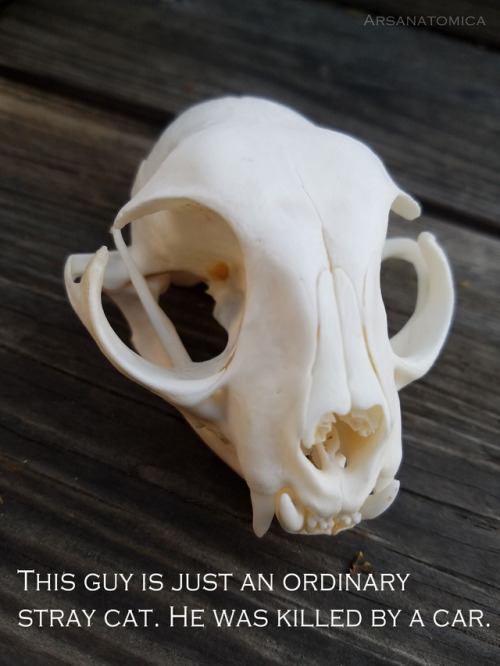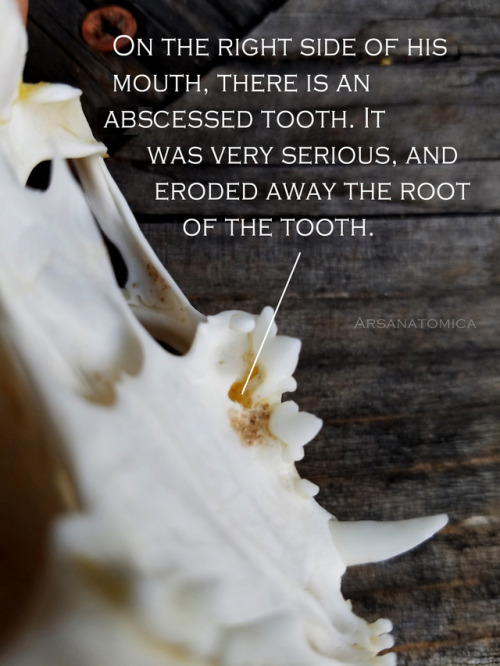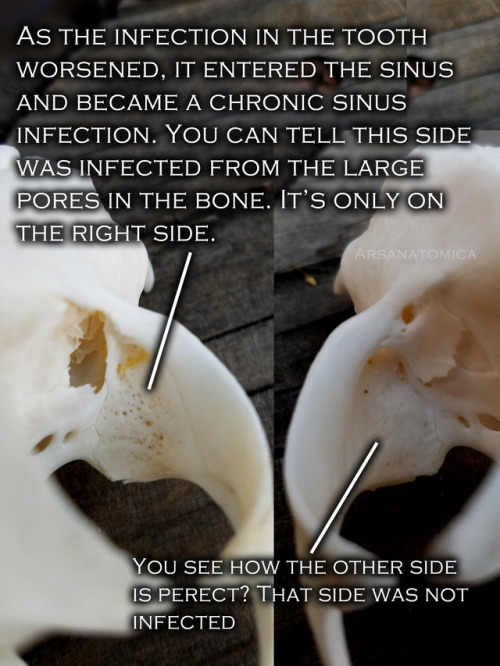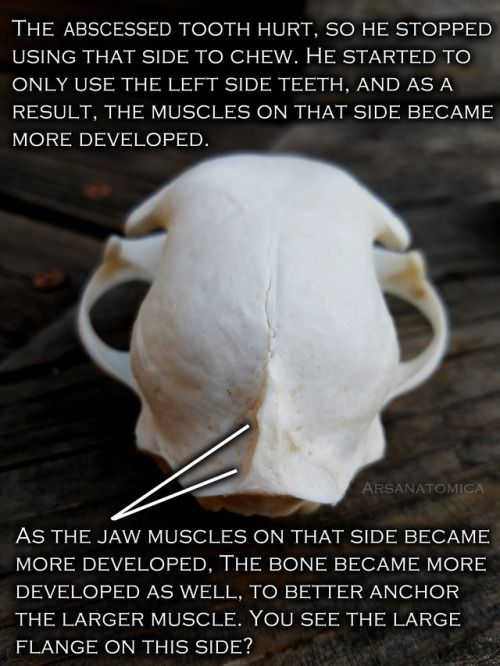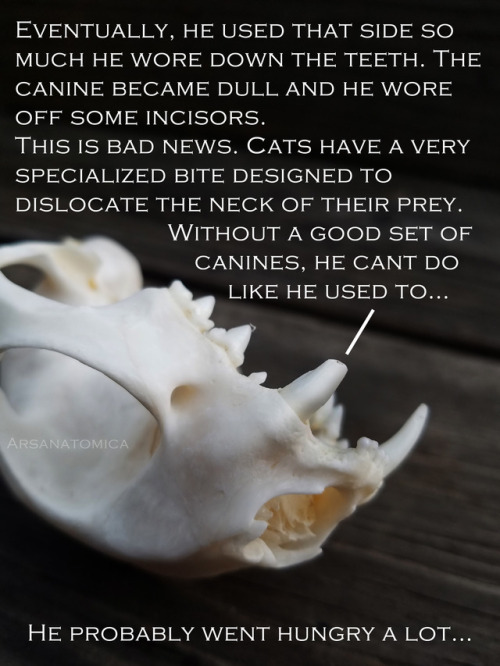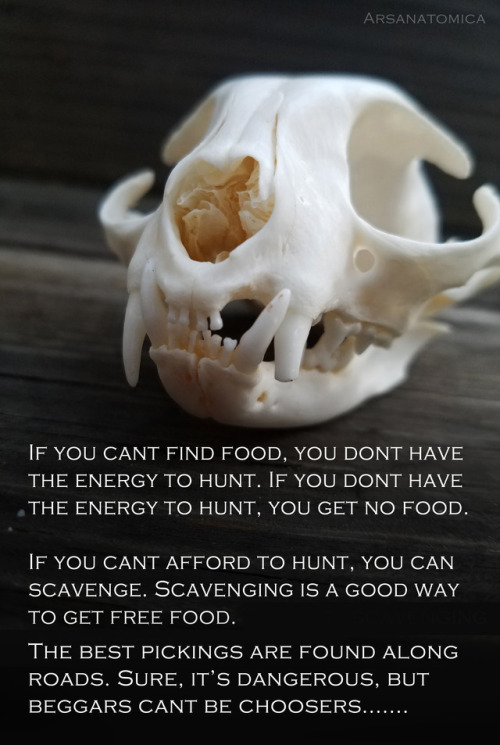It’s #MoleDay! Here’s An Up-to-date Version Of My Mole Explainer: Https://ift.tt/2D1ucqz Https://ift.tt/2N8Vcaf

It’s #MoleDay! Here’s an up-to-date version of my mole explainer: https://ift.tt/2D1ucqz https://ift.tt/2N8Vcaf
More Posts from T-sci-eng and Others

IMPOSSIBLE! Right? You may have heard “the interior angles of a triangle always add up to 180 degrees”. This is not always true. Check out the second image, it shows a triangle with 3 right angles for a total of 270 degrees!
It is true in flat Euclidean geometry (the geometry you probably learned in school) however. But there are so many other geometries out there! You may be thinking, are other geometries real though? A mathematician would argue they are just as real as the typical flat geometry you know and love (or hate). These alternative geometries can be practically useful too!
The images above show triangles in spherical geometry. Those aren’t triangles though! Oh but they are! A triangle is just a polygon enclosed by three lines. Looks like it fits the criteria. Wait but those aren’t lines, they are curved! Ah yes. I argue that these are, for all intents and purposes, just as good as lines. We need to ask: What is a line? A line is so basic to us we may not know how to describe it. I offer this definition: A line is the shortest path between 2 points. The 3 curves that make the triangle above are in fact the shortest paths from one vertex to the other on the surface of the sphere (they just so happen to be on circumferences of the sphere, which are often referred to as great circles). So it may be more useful to think of lines, in general, as length minimizing curves. In conclusion, we would consider the shape above to be a triangle as it is enclosed by 3 length minimizing curves on a surface.
Spherical geometry can be very useful; think about the Earth. To reduce travel time, airplanes would want to travel along great circles as they are the shortest paths from one place to another. Additionally, this type of thinking (rethinking straight lines as length minimizing curves) is central to Albert Einstein’s general theory of relativity.
read more at http://staffrm.io/@missnorledge/35H6cS1T52
If I could catch a rainbow
If i could catch a rainbow,
I would just do it for you
And share with you it’s beauty,
On the days you are feeling Blue.
Rainbows are nature’s optical illusion.

It’s not possible unfortunately to catch a rainbow. They are not objects and are not located at specific distance from the observer that one can physically approach.
Rainbows stems from an optical illusion caused by any water droplets viewed from a certain angle relative to a light source.

They are user-specific and everyone sees a different rainbow.
The monochrome rainbow
Not all rainbows that occur in nature are multicolored. Under specific atmospheric conditions, one can spot the Mono-chrome rainbow i.e It has only one color.

PC : rodjonesphotography
Moonbows
A Moonbow / Lunar rainbow /White rainbow is a rainbow produced by light reflected off the surface of the moon (as opposed to direct sunlight) refracting off of moisture-laden clouds in the atmosphere / from waterfalls.

PC: GanMed64
Each of your eyes sees a different rainbow.
Just as no two people see exactly the same rainbow, even if they’re standing next to each other, the few inches between your eyes make a difference in what you are viewing.

There is no color- indigo ( sort of )
One can distinguish almost all colors in a rainbow but Indigo.
Legend has it that Newton included indigo because he felt that there should be seven rather than six colors in a rainbow due to his strong religious beliefs.

Origins of ‘Iris’
The Greeks and Romans thought a rainbow was the path made by Iris, the goddess of the rainbow, between heaven and earth, linking gods with humans. “Rainbow” in Latin is arcus iris or arcus pluvius, a “rainy arch”.

The iris of the eye is named after her, because of its colour.
The Greeks used the word “iris” to describe any coloured circle, such as the “eye” of a peacock’s tail. The flower called iris gets its name from the Greek, as does the chemical iridium (Ir), compounds of which are highly coloured. Iris is also the root of “iridescent”.
Pulsating Rainbows
Place a linear polarizer over the camera whilst capturing a rainbow and you get pulsating rainbows.

Source
Double Rainbows/ Multiple Rainbows
A double rainbow is a phenomenon in which two rainbows appear. They are caused by a double reflection of sunlight inside the raindrops. Similarly multiple rainbows are a possibility as well.
Observe that the colors in the second rainbow are inverted because the light is reflected twice inside the water droplet

PC: Janbazian
Viral Double Rainbow Video
This video of a man witnessing a double rainbow for the first time went viral, featuring on numerous popular talk shows. Pure ecstasy!
The full rainbow
Whilst standing on earth, we see rainbows as magical arcs across the sky, but rainbows are full circles. The bottom part of the full circle is usually blocked by the horizon.
Pilots however do not face this difficulty. Under the right sky conditions, pilots are spectators to one of nature’s most beautiful spectacles - The full rainbow.

PC : Steve Kaufman
Everything has beauty, but not everyone sees it.
Have a great day!


Elon Musk Announces New Hyperloop Approval Making NYC to DC Trip in Only 29 Minutes
These giant mesh nets provide drinking water in the driest desert on Earth.
Solar System: Things to Know This Week
10 Tools for the Armchair Astronaut, or How to Explore the Solar System from Home
At this very moment, spacecraft are surveying the solar system, from Mars, to Saturn, to Pluto and beyond. Now you can ride along to see the latest discoveries from deep space. For this week’s edition of 10 Things, we’ve assembled a toolkit of 10 essential resources for the desktop astronaut.

1. It’s Like Facebook, but for Planets
Or is it more of a Hitchhiker’s Guide to the Solar System? Whatever one calls it, our planets page offers quick rundowns, as well as in-depth guides, for all the major bodies in the solar system. Explore from the sun all the way to the Oort Cloud.
+ Peruse the planets + See how objects in the solar system stack up against each other

2. Keep Your Eyes on This One
If you still haven’t tried Eyes on the Solar System, you’re missing out. This free, downloadable simulation app lets you tour the planets and track the past, current and future positions of spacecraft–all in 3D. Eyes on the Solar System uses real NASA data to help you take a virtual flight across both space and time.
+ Prepare for departure

3. Dateline: Deep Space
With so much exploration underway, discoveries and new insights into the solar system come at a pace that borders on bewildering. NASA is rewriting the textbooks, literally, on a regular basis. Relax, though: there are several easy ways to stay up to date with what’s happening in space.
+ See the latest headlines + Stay connected on social media: Twitter, Facebook, Instagram + Find more top NASA social media accounts

4. Space? There’s an App for That
NASA offers phone and tablet apps for star gazing, pictures, news, 3D tours, satellite tracking, live NASA TV and many other kinds of info.
+ Start downloading + See other cool apps

5. A (Very) Long Distance Call
We’re in constant communication with spacecraft all over the solar system. The Deep Space Network is a global network of giant antenna dishes that makes it possible. With this online app, you can learn how it works – and even see which spacecraft are phoning home right now.
+ Deep Space Network (DSN) Now

6. Collect ‘Em All
Spacecraft 3D is an augmented reality (AR) application that lets you learn about and interact with a variety of spacecraft that are used to explore our solar system, study Earth and observe the universe. Print out the AR target and your camera will do the rest, making the spacecraft appear in 3D right in front of you. Learn more about these robotic explorers as they pop up on your desk, in your hand, or on your dog’s head.
+ Download Spacecraft 3D + See more cool 3-D resources from NASA

7. Ever Wanted to Drive a Mars Rover?
This site will give you a 3D look at the Mars Curiosity rover, along with some of the terrain it has explored. It will even let you take the controls.
+ Experience Curiosity

8. More E-Ticket Attractions
But wait, there’s more. NASA offers a variety of other fascinating (and free) online experiences, all based on actual data from real missions. Here are a few to explore:
+ Mars Trek + Vesta Trek + Moon Trek

9. The Universe Is Our Classroom
Studying the solar system makes for a compelling route into learning and teaching science, engineering and math. We have some great places to start.
+ Find resources for teachers + Build your own solar system with your classroom

10. Bring It on Home
After you’ve toured the far reaches of the solar system, you can always come home again. When you have spent time studying the harsh conditions on our neighboring planets, the charms of a unique paradise come into sharp focus, the place we call Earth.
+ Watch a real-time video feed from Earth orbit + See a daily global view of our planet from a million miles away + Hold the earth in your hands with the Earth Now mobile app
Discover more lists of 10 things to know about our solar system HERE.
Follow us on Tumblr for your regular dose of space: http://nasa.tumblr.com





Composites: Papercrete
Composites are materials composed of other materials in combination, often with a matrix that binds together fibers of some kind. Papercrete gets its name from its components, paper and concrete, though it is technically composed of cement, not concrete. In papercrete, a composite of paper and cement, the cement makes up the binding matrix that holds the paper fibers together.
Paper is composed of a natural polymer, cellulose, the structure of which can be seen in the bottom image above and fibers of which can be seen in the top left and middle right images. The fibers get coated with cement, often Portland cement, and lend strength to the new material that could not be found in the cement alone. (Paper is not only made of cellulose, but it is a key component which makes papercrete possible. Aside from paper and cement, papercrete is also made with water and some form of sand or earth - other materials can be used as well, just like in concrete).
The material resulting from this mixture, papercrete, has excellent sound absorption, is flame and fungus retardant as well as bug and rodent repellent, and is relatively light. More flexible then rock or regular concrete, papercrete is useful in earthquake prone areas. Though not the best load-bearing material, papercrete is a great insulator. Like any composite however, the exact formula used to produce the material can alter the properties significantly. Adding sand or glass strengthens papercrete and makes it more flame retardant, but also increases its weight.
One of the beneficial things about papercrete is that almost any paper can be used to create it - cardboard, magazine paper, junk mail, newspaper, and other forms. Some work better than others but almost all can be used. Using waste papers such as these prevents them from entering landfills and allows paper to be recycled in a different way.
Downsides of papercrete include its lower strength and durability, as well as the fact that - as of now - there is no code or standardization to its manufacture or use, limiting the projects it can be used in. A fair amount of papercrete is made by individuals working on ‘do it yourself’ projects.
Sources: ( 1 - images 1, 2, 4, and 5 ) ( 2 ) ( 3 )
Image sources: (Middle left)

How did the Greeks know ?
Greeks had a strong geometric approach towards problems and as a result their methods are very intuitive.
In this post, we will look at the Method of exhaustion formulated by Archimedes that stands out as a milestone in the history of mathematics
Method of Exhaustion - Archimedes

Source
In order to find the bounds of pi, Archimedes came up with a remarkably elegant ‘algorithm’, which is as follows:
Lower bound
Inscribe a n-sided polygon in a circle —> Measure its perimeter(p) —> Measure its diameter(d) —> pi_min = p/d —-> Repeat with n+1 sides.
Upper bound
Circumscribe a n-sided polygon in a circle —> Measure its perimeter(p) —> Measure its diameter(d) —> pi_max = p/d —-> Repeat with n+1 sides.
And by following this procedure one could obtain the upper and lower bounds of pi !
Heres an animation made on geogebra for a circle of diameter 1. Watch how the lower and upper bounds vary.

Archimedes did this for a 96 sided polygon and found the value of pi to be between 3.14103 and 3.1427. This is a good enough approximation for most of the calculations that we do even today!

Happy Holidays !

New superglue allows for bonding stretchable hydrogels
A team of researchers at Johannes Kepler University Linz has developed a new type of glue that can be used to bond hydrogels to other hard or soft objects. In their paper published on the open-access site Science Advances, the group explains their development process, the structure of the glue, how it works and in what ways.
Hydrogels, as the name suggests, are materials made mainly out of water. They are typically rubbery and are often elastic. Many of them have been developed to allow for the creation of materials that are more like those found in living creatures. Some examples include soft contact lenses, soft bone replacement in the vertebrae and even jelly-like robots. But one thing that has been holding back more advanced applications is the inability to glue or bond hydrogels with other objects in ways that allow for bending or stretching, or even for attaching well to hard objects. In this new effort, the researchers report they have developed a glue that solves this problem.
Read more.
-
 luadehades liked this · 4 years ago
luadehades liked this · 4 years ago -
 edgaronaroll reblogged this · 4 years ago
edgaronaroll reblogged this · 4 years ago -
 edgaronaroll liked this · 4 years ago
edgaronaroll liked this · 4 years ago -
 anactualamphibian reblogged this · 5 years ago
anactualamphibian reblogged this · 5 years ago -
 littlesoybean reblogged this · 5 years ago
littlesoybean reblogged this · 5 years ago -
 ferae--naturae liked this · 5 years ago
ferae--naturae liked this · 5 years ago -
 copiasprincess liked this · 5 years ago
copiasprincess liked this · 5 years ago -
 harukihatsune reblogged this · 5 years ago
harukihatsune reblogged this · 5 years ago -
 harukihatsune liked this · 5 years ago
harukihatsune liked this · 5 years ago -
 theobliviousreader liked this · 5 years ago
theobliviousreader liked this · 5 years ago -
 diaclarear liked this · 5 years ago
diaclarear liked this · 5 years ago -
 koisaru liked this · 5 years ago
koisaru liked this · 5 years ago -
 ghost-ghost-13 liked this · 5 years ago
ghost-ghost-13 liked this · 5 years ago -
 jaemhan reblogged this · 5 years ago
jaemhan reblogged this · 5 years ago -
 jaemhan liked this · 5 years ago
jaemhan liked this · 5 years ago -
 udirtydogu liked this · 5 years ago
udirtydogu liked this · 5 years ago -
 bikesnink liked this · 5 years ago
bikesnink liked this · 5 years ago -
 crystalroca liked this · 5 years ago
crystalroca liked this · 5 years ago -
 mysticalgalaxysalad reblogged this · 5 years ago
mysticalgalaxysalad reblogged this · 5 years ago -
 muhammadaahsan-blog liked this · 5 years ago
muhammadaahsan-blog liked this · 5 years ago -
 day-knight reblogged this · 5 years ago
day-knight reblogged this · 5 years ago -
 day-knight liked this · 5 years ago
day-knight liked this · 5 years ago -
 mamoontha liked this · 5 years ago
mamoontha liked this · 5 years ago -
 4n63l41 liked this · 5 years ago
4n63l41 liked this · 5 years ago -
 johnnlilllyp77 liked this · 5 years ago
johnnlilllyp77 liked this · 5 years ago -
 offbynone liked this · 5 years ago
offbynone liked this · 5 years ago -
 olddirtyshirt7 liked this · 5 years ago
olddirtyshirt7 liked this · 5 years ago -
 nichtsichtbar94 reblogged this · 5 years ago
nichtsichtbar94 reblogged this · 5 years ago -
 kittyluver14 reblogged this · 5 years ago
kittyluver14 reblogged this · 5 years ago -
 kittyluver19 liked this · 5 years ago
kittyluver19 liked this · 5 years ago -
 crossbonescat liked this · 5 years ago
crossbonescat liked this · 5 years ago -
 tanketan-blog liked this · 5 years ago
tanketan-blog liked this · 5 years ago -
 ef-tu-brute liked this · 5 years ago
ef-tu-brute liked this · 5 years ago -
 scientia-rex reblogged this · 5 years ago
scientia-rex reblogged this · 5 years ago -
 hideki-koga liked this · 5 years ago
hideki-koga liked this · 5 years ago -
 athgalla reblogged this · 5 years ago
athgalla reblogged this · 5 years ago -
 furryvergil liked this · 5 years ago
furryvergil liked this · 5 years ago -
 dendroica reblogged this · 5 years ago
dendroica reblogged this · 5 years ago
